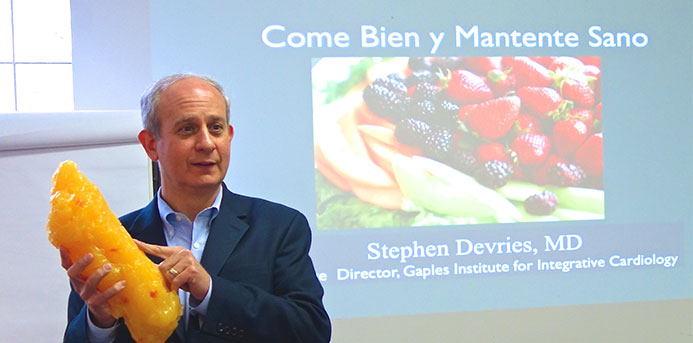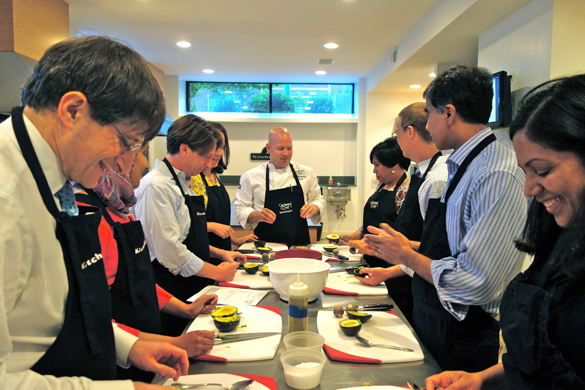Early in his career, cardiologist Stephen Devries had an epiphany.
When he treated patients that left feeling great but had to return two, three, even four times for the same invasive heart procedure, he knew he had to change his approach.
“I realized my cardiology training prepared me far better for bailing people out of situations than preventing them,” he says. “Pills and procedures are incredibly important, but they only represent a small part of what health care should be.”
Nutrition is the top risk factor for death and disability in the country, Devries says. Yet it’s not emphasized in medical treatment and care. It was left out of the curriculum when he was in medical school, and it’s still not taught today.
Increasingly interested in the subject, he trained in integrative medicine—a combination of alternative and natural approaches balanced with conventional—and updated his practice.
The demand for his services was so great, he had a waiting list. Wanting to do more, he founded the Gaples Institute for Integrative Cardiology. Executive director of the Deerfield-based nonprofit, Devries educates healthcare professionals and the community about the role nutrition, mind-body exercise and physical activity play in preventing disease and promoting health.
His interactive presentations at medical conferences and community forums might include a chef teaching a cooking class using healthy ingredients and a Tai Chi instructor giving a lesson.
“The goal is to spark a revolution in health care, to make nutrition and natural approaches play a much larger role than they do today,” he says. “It used to be, the fate of your health rests largely in the hands of your health care provider. Although the provider is an essential partner, your health and wellness are much more strongly related to things that you can do, rather than things that your health care provider can do. ”
For example:
- For people with coronary disease, meditation reduces the risk of serious heart problems by nearly 50 percent.
- The Mediterranean diet lessens the risk of a second heart attack or heart complications by more than 72 percent.
- Walking 30 minutes a day combined with simple dietary changes can reduce the likelihood of developing full-blown diabetes by 50 percent, for those at-risk for it.
Even with genetic predisposition, lifestyle changes can usually control which genes are turned on and which genes are shut off, Devries says. So give your body the same attention you give all of the important things in your life. It’s worth it.


